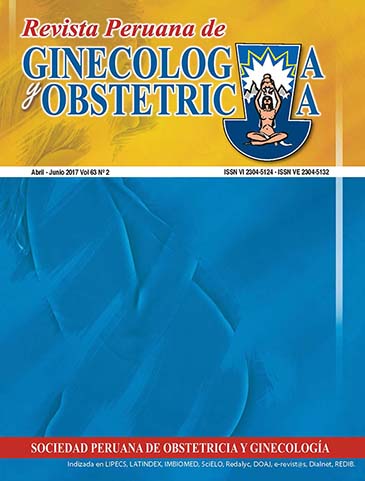Placental exosomes and preeclampsia
DOI:
https://doi.org/10.31403/rpgo.v63i1989Abstract
The success of pregnancy is associated with a correct placentation that is essential for the growth and development of the fetus. In a normal pregnancy, the syncytiotrophoblast produces and secretes a variety of elements necessary to achieve this goal, among them placental exosomes. These carry cytoplasmic and membrane-bound proteins and nucleic acids that can reprogram the receptor cells. Depending on their interactions with the immune system, they can be divided into immunostimulants or immunosuppressants. The production and secretion of immunosuppressive placental exosomes causes a protective effect on the fetalplacental unit. Those isolated from maternal plasma are active in vitro and are incorporated into the target cells by endocytosis. Their effect, regulated by factors that include oxygen tension, correlates with placental perfusion. Preeclampsia is a syndrome characterized by a decrease in uteroplacental blood flow associated with an altered trophoblastic invasion that can lead to placental hypoxia and endothelial dysfunction, releasing harmful materials into the circulation and causing damage to endothelial function. Reports have associated changes in the release, concentration in maternal plasma, composition, and activity of placental exosomes with preeclampsia. In this review, we analyze the origin of placental exosomes and how they might be involved in the pathophysiology of preeclampsia.Downloads
Download data is not yet available.
Downloads
Published
2017-07-11
How to Cite
Reyna-Villasmil, E., Mayner-Tresol, G., & Herrera-Moya, P. (2017). Placental exosomes and preeclampsia. The Peruvian Journal of Gynecology and Obstetrics, 63(2), 219–225. https://doi.org/10.31403/rpgo.v63i1989
Issue
Section
Simposio
















